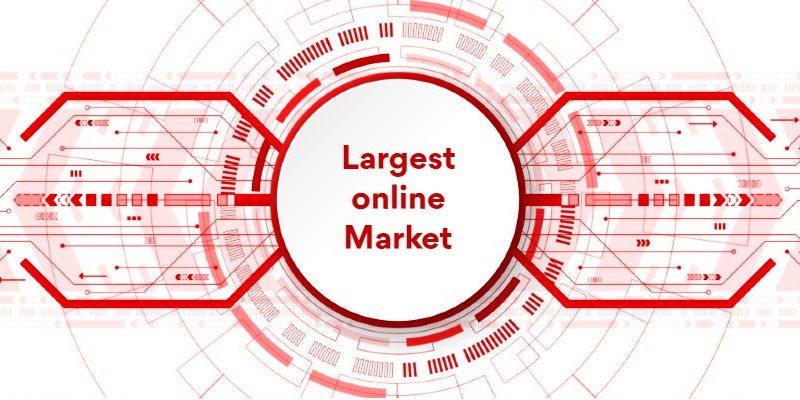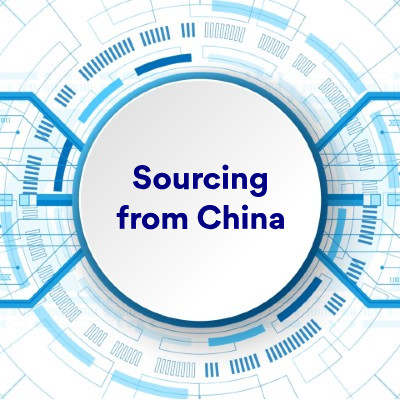
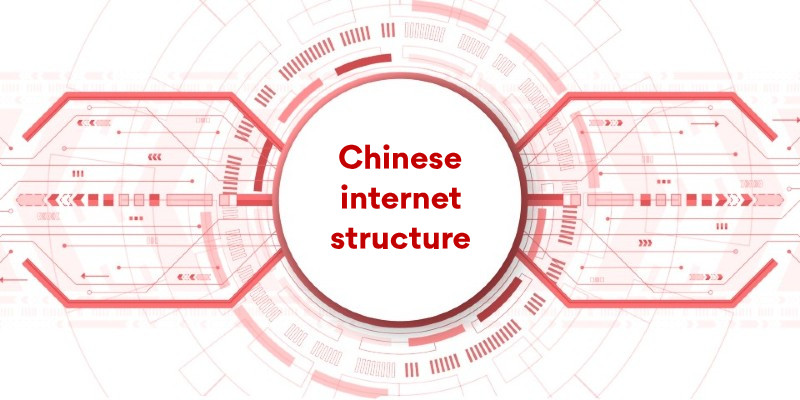
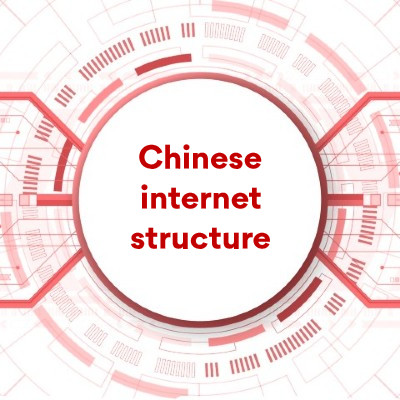
Public internet structure in China
Major Internet Service Providers (ISPs) and telecom companies dominate China's internet infrastructure. Here’s an overview of the key players:
China Telecom is one of the largest ISPs and telecom operators in China. It provides many services, including broadband, mobile, and enterprise solutions. It operates an extensive fixed-line broadband network with a strong Internet backbone presence.
China Unicom is the second major player in the Chinese ISP and telecom market, offering various services, including broadband, mobile, and data. China Unicom operates a significant amount of fixed-line and mobile network infrastructure and has a substantial international presence.
China Telecom and China Unicom established in 2000 from the original national China telephone, were a strategic move to foster competition and accelerate internet development. This split into two government-owned businesses has significantly shaped the landscape of China's internet infrastructure.
China Mobile is the largest mobile network operator in China based on subscriber base and revenue. It provides mobile communication services, broadband, and other related services. China Mobile has extensive 4G and 5G coverage and a sizeable fibre-optic broadband network. Another Chinese government business was created in 1997 to drive the development of the mobile network across China.
China Education and Research Network (CERNET) is a major national research and education network in China that connects universities and research institutions. It provides high-speed internet access and is crucial for academic and research collaboration.
China Internet Network Information Centre (CNNIC) manages China’s domain names, IP addresses, and network information. It plays a crucial role in the overall structure of Internet governance and infrastructure in China.
China Mobile International is a subsidiary of China Mobile that provides international connectivity and services and operates a global network infrastructure to support international communications.
In Summary
- China Telecom, China Unicom, and China Mobile are the three primary ISPs in China, each with its extensive network infrastructure and a broad range of services.
- CERNET serves the academic and research community with high-speed internet.
- CNNIC manages critical aspects of China’s internet infrastructure, including domain names and IP addresses.
These major ISPs and organisations play a crucial role in China’s internet ecosystem, providing connectivity and services across the country and internationally.
Bridging between networks
The national internet is some of the fastest in the world. Many corrections link in milliseconds (MS) across 1000km. For example, from our office in China to our Data Centre 200km away, the link is less than 3ms. In the UK, this link would be 30ms to 60ms.
There are notable problems in some key areas;
- The China Telecom and China Unicom networks bridge in the Beijing hub has limited capacity. Usually, traffic passing between these networks flows between 10ms and 20ms. During daily peak loading, this can slow to over 250ms.
- China Mobile bridges its network in multiple locations, including Beijing, Shanghai, and Guangzhou, and does seem to have this problem.
- Data entering China is subject to capacity restrictions on data entering China. Traffic originating outside China flows slowly. During peak loading, this is very notable, with many overseas websites taking minutes to load.
- Traffic originating from China does flow a little faster. However, Chinese websites accessed from outside China still open slowly.
China's public Internet rules
While these networks can connect to most locations nationally and worldwide, they operate according to the Chinese public internet rules regarding internet use within and outside China.
For this paper, I will focus on the effect of these rules for correcting the public international internet network.
- All public international internet traffic leaves China through Japan or Taiwan. Most traffic from these hubs/gateways is routed to the USA for distribution.
- Public international internet traffic is allowed in Hong Kong, provided traffic is terminated in Hong Kong.
- No public international internet traffic can flow through Hong Kong onto the global internet.
- Flow restrictions on some IP addresses. For example, Google IP addresses have minimal data capacity. Opening goggle.com will work, but it takes up to 5 minutes to load. It will open in under 30 seconds in the middle of the night.
Impact of the points on the internet in China
The workings of the Internet in China can be better understood in the context of traffic flow around the Internet in Asia and the rest of the world.
The movement of internet traffic around the internet is called Routing. The Routing of traffic is simply the path the internet traffic follows as it flows from point A to point B. Often, the internet traffic does not flow by the most direct route. The Routing paths through the internet follow the most effective costs for internet suppliers, which is not necessarily the fastest route for internet traffic.
Selecting your internet provider for hosting and correction is critical to the overall performance of your internet content, website, social media, app, etc.
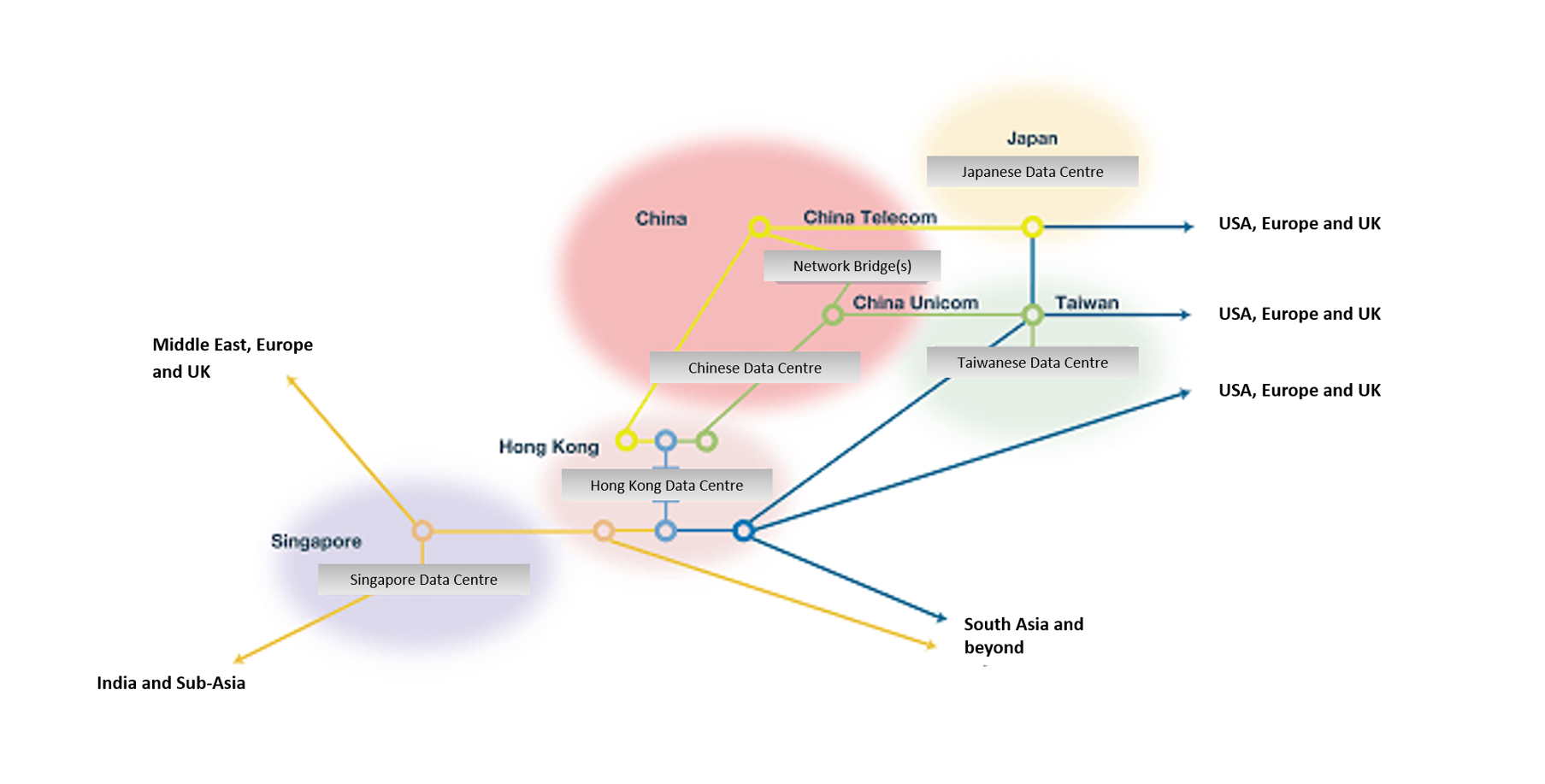
- Internet presence in mainland China is the best way to be seen on the Internet in China, provided your Chinese hosting provider has access to all three major networks;
- China Telecom
- China Unicom (merge with China Netcom)
- China Mobile
This option is only available if you have a Chinese company and ICP certification.
If you have a trading website in mainland China, you are subject to Chinese rules and regulations, taxes, account returns, etc.
- The other Chinese internet option is to host your website in Hong Kong. The direct internet connection between Hong Kong and mainland China costs around $100 per MB per month. Hong Kong hosting service providers often route mainland traffic from Hong Kong to mainland China through Japan, Taiwan, and Europe through the USA to reduce costs.
- Only use a Hong Kong-based internet presence if it has an internet connection directly to mainland China and Europe through the Middle East. If this is not an option, use hosting providers in Japan, Taiwan, or the west coast of North America, such as the USA or Canada.
- There is no direct internet correction from Hong Kong to mainland China.
- Use Japan and Taiwan to host an internet presence to reduce costs. Useful for large data volumes.
- Singapore, for access to the South Asian market, including Hong Kong. This is a poor option for mainland China, as internet traffic will often travel through Taiwan or Japan before entering mainland China. Singapore does not have a direct internet connection to mainland China.
- Many Chinese companies offer international platform services in China, e.g., TMall Global. These services are located in Hong Kong and have listing links in their mainland Chinese platforms' search results. In the TMall Global example, the search result listing is called "Trading without borders."
Many Chinese companies offer platform services in China, e.g., TMall Global; these services are hosted in Hong Kong and have listing links on their Chinese platforms. In the TMall Global example, the list is called “Trading without borders.”
- Only use a Hong Kong-based internet presence if it directly connects to mainland China and Europe through the Middle East.
- Use Japan and Taiwan to host an internet presence to reduce costs. Useful for large data volumes.
- Singapore, for access to the South Asia market. This is a poor option for China, as your internet traffic will often travel through Taiwan or Japan before entering China. Singapore does not have a direct link to mainland China.
Internet in China links to the rest of the world.
As covered above, internet traffic from mainland China with a destination outside mainland China, except Hong Kong, is routed through Japan or Taiwan.
The routing from these hubs is poor at best. Most traffic flows from these hubs to North America for distribution. Sending traffic across the Pacific Ocean and back to Asia adds 150ms to 200ms to the response times. This is often true for India, Singapore, and Hong Kong traffic.
When selecting a network in the Asia region, you need to look for the following routing;
- Traffic for south Asia travels south through Taiwan, Hong Kong and around to Singapore, India, etc.
- Traffic for Australia follows the same path before splitting off in Hong Kong and travelling south.
- Traffic for the rest of the world, including Russia, travels to North America.
Traffic routed to European countries travelling through North America gives a slower response time.
Internet in China links to and from Hong Kong.
The internet costs between mainland China and Hong Kong are high ($us100 / 1 MB / pm). A lot of the traffic from mainland China to Hong Kong is slowly Routed through Japan and Taiwan.
If you use a Hong Kong internet hosting service, make sure it connects to China directly. Hosting your internet services in Japan, Taiwan, or both is faster and more cost-effective
Please note the Chinese platform services, e.g., QQ mail and TMall Global, are hosted in Hong Kong and have a high-speed connection to mainland China and the rest of the world.
Internet in Hong Kong links to the Rest of the World
Routing from Hong Kong to the Rest of the World can be problematic. Traffic from Hong Kong often passes through North America, as does from China.
Hong Kong suppliers route traffic from Europe through the Middle East is the fastest path.
Before selecting a Hong Kong internet hosting service, check the network routing using the fastest paths for mainland China and the rest of the world.
Looking forward
China, led by China Mobile International, have been explaining data networks worldwide. For example,
Trans-Pacific Routes - Many major submarine cable systems connect China to the USA and then onward to Europe. This routing often happens because of these regions' well-established and high-capacity infrastructure. Some critical cables include:
- Trans-Pacific Express (TPE) -This line connects China to the USA, with branching routes to other regions, including Europe.
- Asia-America Gateway (AAG) - This provides connectivity between Asia (including China) and the USA, with additional links to Europe.
- Transatlantic Routes - Traffic travels across the Atlantic Ocean from the USA to reach Europe. Several high-capacity submarine cables connect the USA to Europe, such as:
- Marea Cable - A high-speed cable system connecting the USA to Spain.
- TAT-14 - Another essential cable linking the USA to various European countries.
While these types of developments are essential for the ongoing capacity of the public internet, two underlying policies need addressing;
- Peering Agreements - The USA is a central hub for international internet traffic, and many global ISPs have peering agreements and network infrastructure in the USA, facilitating more accessible and often more cost-effective routing. This is even the case with many new cables installed today. The fastest routes to most of the world from China are south and west, not east, through North America. For example, routing to Europe should be through the Middle East; it could be 50% faster, or routing to India could be 70%.
- Chinese firewall capacity - Access to China understands any country's right to determine internet use in its territory. With greater capacity being added to networks around China, increasing the capacity of the Chinese firewall would help China take full advantage of its investment network investment worldwide.
Private network work connections are also available. For example, they are routed through Russia to Europe. The same ICP rules apply to these services. They can be costly but achieve a significant performance advantage over the public internet.
Data Centres in China
In our thinking, the network determines which Data Centre / Cloud services you should use in China.
Many network suppliers offer Data centres and cloud services. The limitations of the network capabilities affect the servers you can achieve from the Data Centre / Cloud service.
While China Telecom and China Unicom are high-speed networks, the bridging issues result in poor performance in certain areas, e.g., customers on other networks during peak loading.
Data Centre / Cloud services are independent of network carriers and can offer multi-network suppliers. Please note: you will need to handle multiple public IP addresses. Each network supplier has its own set of IP addresses.
Based on the information above, A Chinese Mobile network would be the best network to support your service in China.
We recommend that you test the network corrections to all parts of China when determining which internet services to use in and outside China. Chinese sales staff often tell you what their services can do without understanding the above points.
Virtual Private Networks (VPN)
Offer when we are reviewing Chinese networks the subject of using VPNs to resolve the points above; This does not work in China;
- VPNs are now allowed in China. As fast as they appear, the Chinese authorities close them.
- VPNs avoid, in part, the Chinese firewall.
- VPNs on the public internet generally do not improve network performance unless the VPN use private cables and routing.
Last modified: Version 2.5 - March 2025



